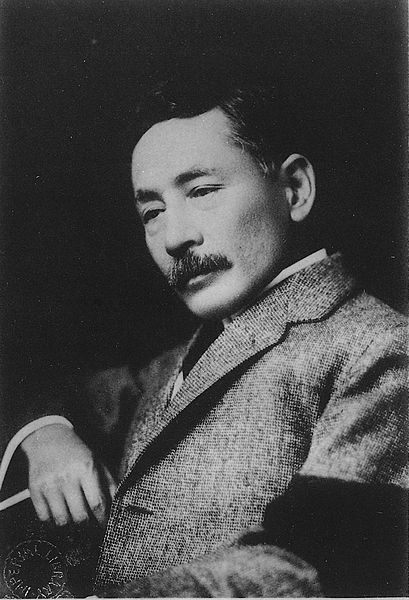Kenzaburō Ōe was a Japanese writer and a major figure in contemporary Japanese literature. His novels, short stories and essays, strongly influenced by French and American literature and literary theory, deal with political, social and philosophical issues, including nuclear weapons, nuclear power, social non-conformism, and existentialism. Ōe was awarded the 1994 Nobel Prize in Literature for creating "an imagined world, where life and myth condense to form a disconcerting picture of the human predicament today".
Ōe in 2012
Ōe at the Japanisches Kulturinstitut in Cologne on 11 April 2008
Book cover of the 1996 English version of Kenzaburō Ōe's book about his handicapped son and their life as a family.
Ōe at a 2013 antinuclear demonstration in Tokyo
Japanese literature throughout most of its history has been influenced by cultural contact with neighboring Asian literatures, most notably China and its literature. Early texts were often written in pure Classical Chinese or lit. 'Chinese writing' , a Chinese-Japanese creole language. Indian literature also had an influence through the spread of Buddhism in Japan.
Murasaki Shikibu, the author of The Tale of Genji
Matsuo Bashō, a haikai poet
Image: Mori Ogai in the atelier of Sculptor Takeishi Kozaburo in 1916
Image: Soseki








